I love Motorsport and have an approximate knowledge of some other things. Trayambak Chakravarty https://linktr.ee/trayambak
Don't wanna be here? Send us removal request.
Text
It is not yet my 24th year being alive. My roommate lies on his asleep, half dead and half thinking of his own future prosperity. I have tried in vain in many to make him believe that his future might well lie with me, together we might run the country's most progressive political campaign in history. However, his ideas stand straight against mine hunched, as they try to convince me that the days of the idealist is all in the past, in this era of rampant fundamentalist hindusim you might as well be arguing against those asking for a turkish caliphate, that your demands for a just India are just such: an idea consigned to history long before you were ever even an idea.
In any case, forget all you have read before and trust me in this: If you think that rampant idealism still has a place in this country then stick with me, otherwise leave me because i have no hope for the future left. My entire future is built on that idealism which has nuclear energy and rail connectivity and walkable cities and organic produce and equitable justice. If this is not acceptable i might as well die. What did you say? Is it not? There I go then.
0 notes
Text
It has been almost five months that I complete now in Mumbai. The way I live, I cannot really call it "Mumbai" as such because I live in Kharghar, Navi Mumbai. I also cannot call it "Mumbai" because I do not feel like calling it Mumbai anymore. I never really warmed up to the name even though I am a person born in 2000. There is a certain nostalgia and attraction still associated with the word Bombay that I find way more enticing than anything that resembles this mesmerising hodgepodge of collective that this city pretends it is but it is not. It is a story of has and has beens that has been distilled into physical structures. Those structures are represented more by bars and social areas than homes in any other manner.
I attend one of the most prestigious institutions of the country and yet every day I feel the utmost regret and sense of privilege that I carry. I do not mean this to sound as if I mean that the privilege I carry is some burden that I am making a big effort for the lower classes to carry, but the fact that I am in my state helpless to provide them with help. As a student one of my biggest weapons has become the "student discount" but that is such an insidious thing to ask for when you are someone who pays more than a lakh per semester to attend a few lectures that give you a degree you can show to the world saying you attended some classes where an older person told you to read something you had not read before.
I am sorry if this comes across as cynical. I have been reading the book "Hatred in the Belly", a criticism of the likes of Arundhati Roy and Navayana Publishing, which are primarily Brahmin led, to explain and/or take up space in the dalit literature canon that should actually and logically be taken up be dalit voices. In history I am one that does not have the right to access this space, and I am happy to do so. But recently I have come across a group, especially on Twitter, who although not insidious, are more than likely to fall in this "arundhati roy" band of activism that means rapid criticism and taking spaces of those who need their voices heard, rather than careful and considerate exercise of voice and privilege. I wish not to follow their example.
In fact, it has become quite hard in this country to not be a reactionary. The specific brand of activism that comes from reading Arundhati Roy and the Mcdonalds-esque commercialised version of dalit literature such as Navayana publishing is invariably suited more to twitter discourse than any real social change. I associate these more with the ridiculous of notion of "words will change things more than guns will". Although I am no longer affluent with the idea of violence as revolution as much as guillotines as revolution I am much more inclined to a sort of debate that takes the central space much more confidently for itself than it allows the far right to occupy. The beef ban issue and NRC are not so centre as to deserve national discussion, than mere fringe right talking points that have been given platforms by the government. I personally feel sick seeing this happen especially as our democracy is already at such a perilous stage that I alone with like 2 readers feel scared posting this. Although not the peak of literary ability in my old monk state of mind, I belive i needed to say it to someone rather than keep it to myself. Now you have read it. I do not know what you think about it except thank, you.
6 notes
·
View notes
Text
This year has been anything but what I imagined my 23rd year on this ridiculous planet to be. No one wants their life to be anything other than the most romantic iterations of their dreams and yet, we fall short. In 2022, I came damn close to this. After many questions, In would tell people that a person can have two dreams. Mine were both to be an automotive journalist (because it was too late for me to be a star racing driver) and to be a bureaucrat (because a public servant seemed like the most noble profession out there). I consider myself someone that the country needs, whether someone else believes it or not. I would like someone like myself to be at the table when important decisions are taken and there to be someone like me present when important "gotcha" moments take place, something which prevents a war. That might seem overly ambitious and yet I stand by it. In any case, 2022 has been one of the defining years of my life. After a devastating year not just for me but for humanity as a whole (which I am thankful for as it hid my own inabilties), I am able to reconcile myself with the fact that I am able to not only hold my own as an independent voice in automotive journalism by way of evo India, the best bunch of people ever assembled together in a single building together, but also to get into one of the most prestigious universities in the country in St Xavier's College, Mumbai. Mumbai in itself has been a journey, notwithstanding the six months I spent in the nondescript wasteland that is Pune. It might come across as a gloating letter, but I am glad in the way that 2022 turned out. The worst year turned into the most happening year. I must be grateful.
1 note
·
View note
Text
Moving, dream job and forward
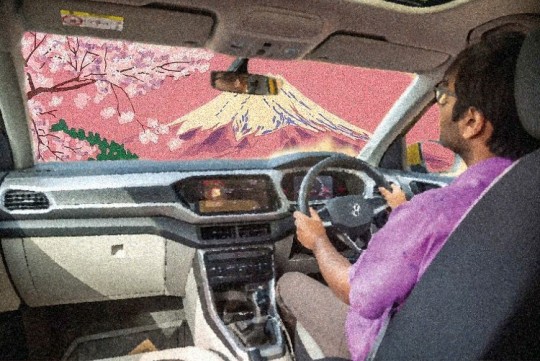
I realise it has been a long time since I last wrote here, and so much has happened since then. When I was a child, my first dream job was to be a car designer. I used to doodle and scribble and thought it would be a cakewalk, but soon enough as with other things, mathematics turned out to be my bane once again. Having little patience to deal with that nonsense, I shifted my focus to becoming a journalist, believing myself to be so good of a writer that I couldn’t see past my own vainglories. And when I learnt that there was an option to be a journalist who only writes about cars, an automobile journalist, I was hooked. Although later on my priorities changed, as I soon wanted to be a columnist and then a civil servant, that dream still remained.
The last five months, I have lived that dream. Out of nowhere, I got an opportunity to intern at one of my favourite Indian automobile magazines, and oh joy, it was better than I had ever expected. I got to write more than I thought I could, drive more than I thought I could, drive more expensive and beautiful cars than I thought I could see, and be a complete pain in the ass for my editors. They even put pictures of me in the magazine, for who knows what joy. But damn, what a life. But enough. With no malice intended, I could not see this being the finality of my story. That bug of wanting to change things cannot be done from behind the steering wheel, and I want to be the change.
Pune started off as a depressing hellhole, but soon turned into a wonderful safe space, everything considered. I came to enjoy the life in a PG, commuting to “office” everyday (where everyday someone would invariably start singing a potty song that would soon spread through the office and by the end of the day 15 grown ass men are singing bedardi raja in unison, and then playing with electric scooters). It was soon time to move though, as I was also still going through the motions of giving those asshole entrance exams. Shifting to my best friend A’s place, and giving my notice, was a breath of fresh air.
A dropped me to my next entrance exam, and I topped it. After that, the month went by like an electric car, so fast but unnoticed (that’s a car reference from my professional experience). It was such a good change of pace, with leisurely strolls and conversations. A saved me from a lot of misery that I would have otherwise inflicted on twitter had I still been in the PG. What a time.
But now, it’s all change again. Just a few days ago, I shifted to Mumbai, and Mumbai scares me. It’s a peculiar thing, there are only two things I am really scared of. One is nightmares that have tiger themes. The other is the city of Mumbai, with all its excesses and size and people and…it’s just so much. Pune is positively quaint by comparison. A big part of my fear is that I don’t want to become Mumbai. An excessive, scary bastard who has no time to stop and look around, no time, just running from one place to another. I am sure (and I hope) that I will be proven wrong by this city, but for now, I just feel immensely out of place and lonely. This too shall pass, but in the meantime, all I can do is hope that college is good. I’m sure it will be. I will make it so. Either this city survives or me.
5 notes
·
View notes
Text
So much of it all
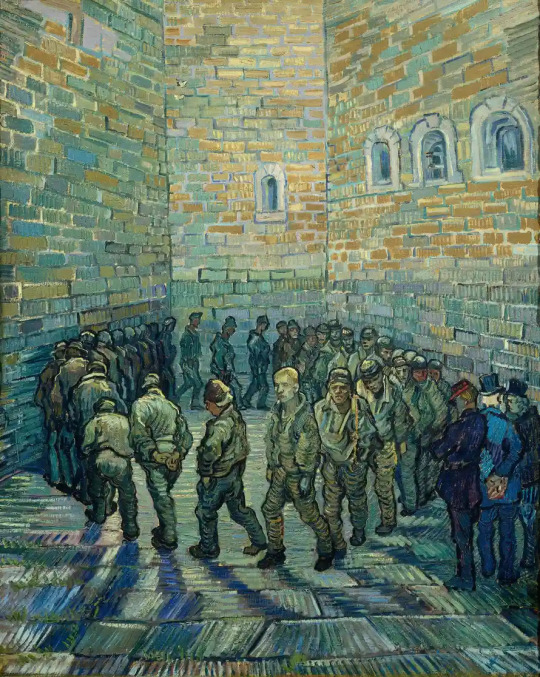
I was wondering recently as I started a book again after a long time, how my pattern of thought has changed as I have grown older. Most of you who will read this have probably gone through the same metamorphosis in how we consume media, interact with technology in our lives. We have seen the shift from cassettes to discs to streaming, and some of us might also remember typewriters. Granted, a lot of this exposure to vintage tech is because India got exposed to the cutting edge much later (and one might argue now there is too much cutting edge), but it brought a change in my way of looking at things into sharp focus. Reading a book is a vertical exercise, wherein you go through it one by one, level by level, taking a moment, every page followed by another. You cannot start from somewhere randomly unless you have already read it, and even then, the act of re-reading the whole is a joy in itself. In the shift to digital, we have now become so accustomed to open access (in the way of perusal), the availability of all material unbound by a vertical structure of chapters, titles or subtitles, that our way of thinking itself has turned from lateral to a giant mess of multi-point attention. Although there are studies, it is a little hard for me to believe that this entire generation has lost its attention span. I think we suffer more from our ability (and indeed, being forced to) spread our attention at all times to a hundred different things.
Video games are similar in how they have changed. I started gaming when the norm was to have level progression and specific areas to enter, finish all objectives in and exit. You could not randomly jump in to any point in the story and continue playing. You had to follow the structure, and it gave you a sense of direction. To a gamer of today’s generation, who is oversaturated with the Ubisoft and Rockstar standard of open-world map unlocking games like Assassin’s Creed and Grand Theft Auto, it would seem ridiculously limiting to have to go through such a structure. But look at the reception and criticism recent open-world games like Ghost of Tsushima, Horizon Forbidden West and The Last of Us 2 have got. Having an open-world for the sake of it does not make the game thematically any greater than a linear game. Ghost of Tsushima is a breathtakingly beautiful world built around an idealised version of Japan’s Samurai era, even harking back to Kurosawa tropes. But the storyline is limited so much by the open-world structure, which constantly distracts you and bombards you with things you waste you attention and energy on. The story deserved a much more focused, linear structure, because the story was beautiful. In the excessiveness of the structure, we lost the minimal beauty that was in the relationships of the game.
I think this is why we are addicted to binge-watching so much. Something about a linear structure of episodes and chapters brings us back to that safety and peace that we (at least I) remember from a time when we did not have to live up to the vapid fascination fuelled by the social media age. This is not a criticism of social media, which I always have believed can be a truly great resource. It is however a criticism of how we are made to use social media. We interact more with brands online than we do with real people. There is a point at which we ask ourselves, I wish I was talking to the person who was behind this account rather than a fucking brand. Binge-watching lets us go back to structure, and that is again broken with the desire to feel included in the “conversation” and interact with every single piece of online material about it, down to what the actors wear daily.
Even through the course of writing this, my attention has been spread between four devices, and I have gone and come back more times than I wanted to, resulting in this disjointed mess. I do think the revival of dedicated devices is a good thing. E-readers are a boon to have as a reader, you can have a portable gaming console now and even keyboards with tiny screens that only let you type in peace. The era of the multi-purpose has for sure developed a new type of person. I’m not exactly sure I want to be one.
#open world#open world games#gaming#tv shows#shows#binge watching#attention#changing#curious#feel#attention span#Spotify
5 notes
·
View notes
Text
conversations

A lovely piece of writing by Marshini, who I am proud to call my friend.
When Tre randomly sprung the question and asked me to write for his blog, I was honestly lost. For a person who constantly complains about the (mis)representation of women or the lack thereof, I could not for the life of me come up with something that had not already been written about. And then as I mulled over the course of our conversation earlier that night, I realised how this even came about. We were discussing men studying humanities at our University and their dating pool. Yes, we were complaining about insufferably well-read men. And let me be very clear, this complaining does not stem from jealousy despite their ability to quote the UN Charter like the back of their hand.
Before divulging further, I just want to place on record the small prayer and a heavy sigh that leaves my lips when I hear stories of women having to settle. More often than not, we settle because as we all know, having low standards is worse than having none at all.
To begin with, the male population in my school were boys of whom I thought, so emotionally immature. So something about meeting boys in fests seemed more tolerable; at the top of the culmination of this social rung were the MUN/festing boys, formidable with their heightened awareness and their knack for words. I was even naïve enough to look forward to meeting such well-read men in college, elated at the prospect of getting to know ‘my’ people. Any woman reading this would very likely relate to how unsuspecting and just how foolishly we thought better of them. They have read political theory. They know there’s five waves of feminism. They are quite cerebral about the movies they watch and the art they consume. What more could you want? So you get to know them better. They tell you that they like you because you are smart and they want you because you are smart.
But it only takes a matter of days to see the cracks on the façade. More often than not, it all begins with a snide remark enveloped as a product of their enviable wit and impeccable comedic timing. Before you can process it, you are asked to graciously take a joke. And you do what you are told to because you think it will get better. I mean, what's the harm with a little uncomfortable smile even if you don't agree with what's being said, right? They are rational and they share the same values as you.
In spite of your rapt attention to his actions, it's all bokeh. It snowballs to bigger things- supporting problematic artists, a warped grasp of dark humour which gradually morphs into an assertion of their self-assuredness. They reassure you that you are loved because you are smart. You soon realise that you should only be smart enough to impress his den of pompous friends but not too smart that you intimidate them. Somehow your smartness is a quality they want to flaunt like a trophy, but whose accolades you cannot celebrate - and it definitely shouldn't be one too many.
You try to hold yourself together and give them the benefit of the doubt. You tell yourself it’s the years of indoctrination of toxic masculinity and the weight of gender roles. Familial expectations. Mental illness. You claim to yourself loudly, ‘They are not like the right-wing men I detest.’ They are not shallow and they like you because you are a good, smart person.
Before you know it, you are in too deep. Now we are at that stage where your laugh is too loud or your lipstick is too bright. Or the books you read and the artists you hate are too political to be declared openly in social settings. It is not very objective Marsh, they tell you. Be rational.
Finally, you get it together and uptalk yourself in the mirror, thinking of various scenarios to manoeuvre the conversation for when things go downhill and you know, it most certainly will because according to them, being nice is a low-end virtue; somehow even the slightest display of consideration will break their fragile ego. You hate him but you hate yourself more because you still expect better of him.
The fine day arrives. You decide you have had enough and you confront them about it. On the rarest of occasions, an apology is mumbled, unsurprisingly devoid of any meaning or remorse so you take what you get because just the general guilt of the confrontation consumes you. But other times, it is exactly how you wished it would not be. Whether it is winning MUNs or arguments with their partners, their only key to emerge victorious is being loud. I don’t even need to elaborate on the end result of this yelling fest. Ultimately, it is an excruciating blow to your understanding of rights and wrongs. It sows a seed of doubt which still haunts you as the entire premise of the relationship was built on a shared intellectuality and their supposed decency.
Then it all comes crashing down at once to you- just because they spent hours researching female genital mutilation in Libya for UNHRC does not mean it translates to an iota of empathy for fellow beings beyond the scope of jargon. It only made them remember facts. Maybe earned themselves the title of a stellar debater.
Women, these men tell you they like you because you are smart. But are they?
For all my thoughts and beliefs, I have always felt that there are certain things that I must keep to myself. Experiential memories aside, I never want to be a person who steals someone else's voice. This is especially true in the case of my feminism. So, I asked my lovely dear friend Marshini to write about a topic we were discussing recently, and since you're here, dear reader, you must have already had an epiphany like me. Thank you M for being a part of my blog. - Tray
17 notes
·
View notes
Text
KUN

The origin of everything has been a fascinating truth that no one knows about, and sometimes I even doubt my own existence. Existence is divided into two forms: physical or body and spiritual or soul, which makes it difficult for me to comprehend. I understand my physical requirements, but for a long time, I had a spiritual void that I always attributed to a lack of emotions, but even when I had someone to whom I could express all of my emotions and thought I didn’t have that emptiness anymore, I pushed myself into oblivion. Kun is an Arabic term that means “to be” or “manifesting” and is referred to as the force of creation in Islamic and Sufi traditions, similar to what OM is in Hinduism. Physically, it may have been Big Bang theory or something else, which I’m sure is as technical and intricate as our bodies, but spiritually, I believe we already know the answer.
According to what I’ve read, every sound is made up of waves, and everything that consumes space is matter. Surprisingly, everything in our world is continually in motion or vibrating, and this constant vibration is only possible due to an immensely unique energy known as “sound.” We know that a particle is the most minute component of matter, and at the Quantum level, everything is a wave and a particle. I don’t know much about quantum physics, but this clearly indicates that sound is responsible for our existence. What is the most powerful ultimate source of energy on the planet? If you’re going to tell me Sun, I’m going to say it’s undoubtedly sound. If someone had told me this in early 2020 using the same logic I used above, I would have laughed for at least 10 minutes, but I realise this because we humans have outdone ourselves with the production of music. Given how miserable our species is, music is an invention that gives physical form to sound.
There are two types of existence, and music is what fills the void in my spirit. Every time I realise this, I remember how complete I was to begin with, and how there was no emptiness. I’m sorry, but I don’t know how to put it any other way. From the burbles of the stream to the beating of the heart, the universe is filled with melody. People frequently tell you to do what your heart tells you to do, but the next time, try to figure out what the rest of the world is saying. Listen to all of the beautiful music our planet has to offer, and I’m sure your heart will follow you, as it always does with the music we listen to. I am grateful that I can hear “THE ULTIMATE FORM OF ENERGY” and know that it has all of the answers; all that remains for us as humans to do is listen.
15 notes
·
View notes
Text
Sorry State of Being
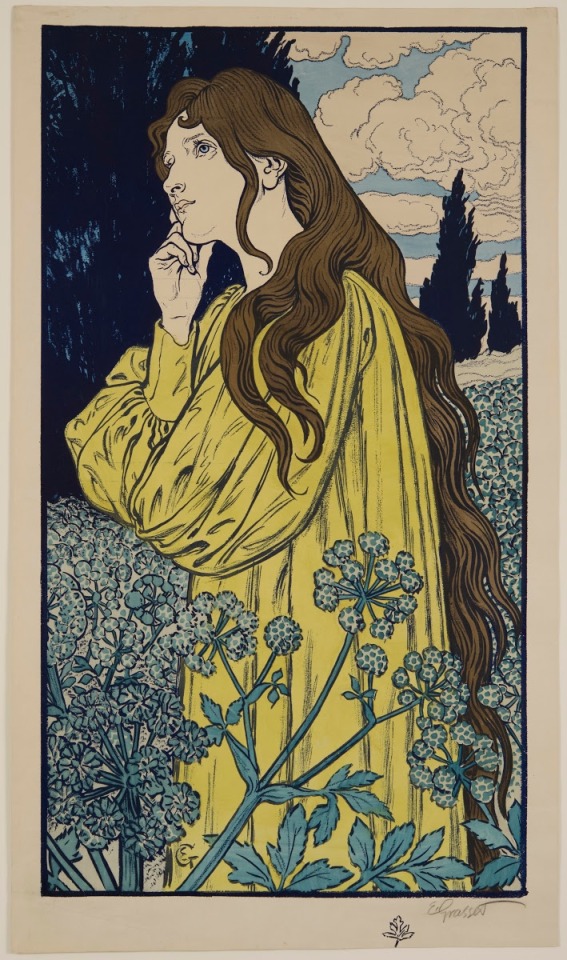
The idea that this pandemic has in any way been positive to the populace other than showing up as such in their worst nightmares has been a myth since the first lockdown ended (remember that?). This pandemic has only been a negative thing, taking away from what we had, and being rare in the way that it has in any way been a situation conducive to goodness.
I feel like I have not been true to myself, not only because of the pandemic but because it is only now that I make an effort into understanding who I truly am. I have been told that I will do well, things will be good for and in turn I will make things good for others. I relegated myself to this notion of what I was supposed to be, and the fear now is that maybe I believed in it being the truth too much.
I only recently realised that the political ideology I identify with most is that I'm a social democrat, because to me being a total leftist in today's age is an impossibility. However, by consigning myself to social democracy I'm consigning myself to compromise, and this appears to be the continuation of a theme in my life. In interpersonal relationships, I've realised I rarely hear the word "sorry" from anyone directed towards me, and till now I had convinced myself that that was a good thing maybe. But I end up saying sorry for the heck of it, maybe because I want to balance the lack of sorries in my relationships. It sounds like a weird metaphor for how the spirit of compromise has compromised my whole spirit.
Because of the pandemic, simple communications skills are being lost from my grasp. I am on the verge of losing friends with whom in normal circumstances I would have been inseparable. Forget making new friends, sometimes I forget how to talk to the ones I do have, at one time being overly edgy and at others becoming more emotional than the situation requires. While no one would call me a true emotional, it would be fair to say that the display of emotion is something I have so far failed to comply with, save for a relative few occasions.
This, along with the large period of fallow joblessness that I have experienced over the months since my (virtual) graduation have intensified the feeling that perhaps I am being "found out". I have no answer to this, perhaps this is not a question to be asked, perhaps it was always known, except to me. Boredom has overtaken my life to the point where I am studying for my own sake, often not knowing the day or date. Boredom only makes you eager to get to the next thing, and my days have been filled with these long periods of waiting followed by instant gratification from what I decided to wait for, a new episode, or a new article or a new game. It really doesn't matter as long as there is something to look forward to. Ever since the season ended, my weekends have also been deprived of any and all kinds of motorsport racing, and so this period has become even more maddening.
One constant "ick" (as the children say now) in the back of my head lately has been the constant knowledge of living in a deeply backward and rural region of the country, and yet having not taken a step into it, for myriad reasons. Most times it is my own inaction, and other times it is the scare of the pandemic. The fact remains, that I am in a location where I should be out learning what things are like, considering the deep feeling for the injustice that I've made myself feel is present in society, but it is inaccessible to me, of my own volition. It comes back to the question of compromise that I raised earlier, perhaps I am compromising on any real agency in terms of my own political action because the comfort of living in the house my family lives in is too attractive.
As I listen to George Harrison's Isn't it a pity for the 10th time tonight and drown myself in the blues that accompany me on my nights, maybe it would be prudent to just "get on with it". I'll make the best effort, put my all into a few hours to come up with another statement of purpose, another writing sample, another exam to give to be considered for admission into something that gives me a respite from my own self, a struggle that all humans have dealt with for millennia, that I have read about from many great figures in history and felt pity for them, but which this time seems to me to be of the worst degree of hopelessness.
Because it's now happening to me.
4 notes
·
View notes
Text
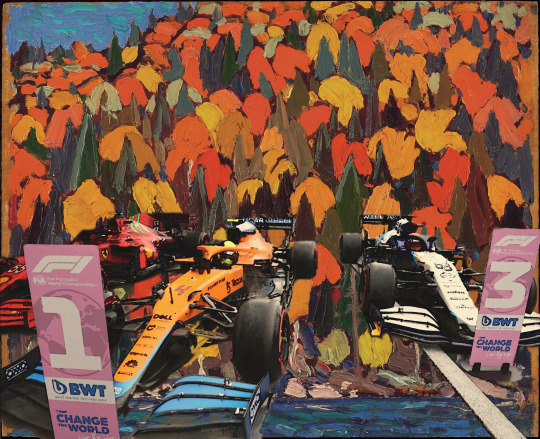
8 notes
·
View notes
Text
Dude I Hate Entrance Exams
A few weeks ago I was in Patna for an entrance exam, a concept so uniquely bastardised into Indianity that it no longer resembles any goals or visions or ambitions. It exists to torment. Aside from dealing with the terrifying ordeal of being in Patna, I was also at that moment faced with the agony of having to sit for a completely inane system of examinations that I knew would have no bearing on my actual (perhaps more accurately the innately perceived) academic and intellectual ability I possess (let's be honest I am dumber than I think I am), only to end up with a most probable gap year which I would, you guessed it, spend preparing for another competitive exam (a term that I find increasing in use at an alarming rate). Why do we subject ourselves to this nonsense torture? Why is it that our worth is measured in our ability to select single answers from a group of four ridiculously closely chosen options worth a single mark? Can anyone honestly tell me in my eye that if I tell you the correct answer from between 1950, 1951, 1952 or 1953, it tells you anything about my knowledge, or about my quick thinking reactions, or my bullshit ability, a skill so important in academia it is revered almost to the level of a 12-page paper written in the language gibberish with 200 citations, indicating no actual original thought. No, it tells you that I either have a remarkable memory, which had its uses in days when... let's see...you did not have the entirety of human knowledge in your pocket, accessible at all times. It also tells you that if I know the answer, I have spent ages mugging it all up in a coaching centre where because of your completely predictable patterns of choosing questions, Biharis have figured out the most efficient way of "cracking" your exam, another uniquely Indian word, cracking, as if we're opening a safe purely by ear. What I fear are the students who actually secure good marks in these exams. These are people who, instead of focusing on becoming knowledgeable or at the very least capable, have mastered the art of giving exams, and so, finding very little to actually do in the fields that they enter after the fact, return to the safest world they know, and open their own coaching centres, raising another generation of tuition teachers. And so the cycle continues. Of course, if I get a good result in my entrances all this stands moot I am smarter than you go jump off a cliff.
2 notes
·
View notes
Text
Zero-Sum Game
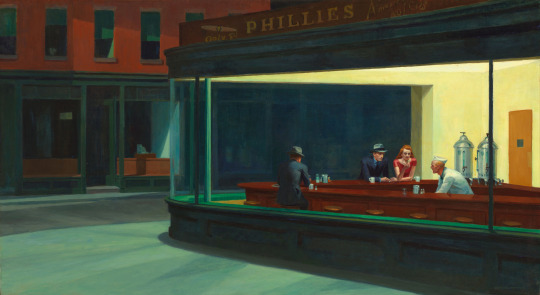
Come, join me in the little Nighthawks cafe. Here's a drink. Settle down. It has been a long time since I wrote here, and for all that time maybe no one noticed the absence of the blog as well, which is fine by me. I have spent this time figuring things out. It has meant partaking in the devastating act of looking at myself from what John Rawls would call his veil of ignorance (which hopefully is also my last attempt to convince you that yes, I am an academic), and the picture I saw painted in front of me has made me realise something. If this is what you have all been facing all these years, I guess I owe you all an apology, because by God spending 20 minutes here must be a holistic nightmare.
However, what it has also led to is a reckoning with who I want to be. It would be disingenuous of me to assume that all of us feel the same way, but honestly (and you all better get with this program), I am rarely wrong about things. I think all of us have a vision of the person we see ourselves being in our future. A mirror, nay, a portal into a future where you are the person you want to become, or the person you fear you might become. What qualities do you have? What does it mean to you to know this person? Would you try harder to be them, or would you try to change things up and keep your future on their toes, as if to become the living embodiment of a land mine to your own self? As Calvin’s dad would say, even that builds character. Think about that while I tell you this boring story.
I recently read about a District Magistrate posted in Keonjhar, Orissa, a small mining district. The town was riddled with disease and illness, especially for children, and the local administration was at their wit’s end as to why it was so. Although the obvious answer was literally the mining, they wondered how to solve the problems. The DM came in, simply looked at a fund created especially for mining districts that used a part of the profits and realised they were left unused. He used these funds to dramatically improve the healthcare of the region, increased investment in all possible social barometers, and even enforced the minimum wage already put in place, which meant that all the daily wage labourers who had returned to their homes because of the pandemic never left. The person came in, saw things being unused, used them and improved the significance of an entire district. This was a person of consequence.
What I know is that I want to be a person of consequence. I do not want to be famous, no, because you can be known all over the universe and yet amount to nothing in the grand scheme of things. We all know these people. Maybe we even admire them, but do we want to be them? I think not even they want to be them, because how else would you explain the myriad celebrities out there trying to make a legacy and prove themselves as being greater than what they are. It is a life trying to become important instead of being famous when you realise your fame is fleeting. There is no shame in being famous, but it is not who I want to be.
I want to be of consequence, not of notoriety because being notorious means you will not be remembered, you will be feared. There is no feeling worse than entering a room where you are not wanted, and if you are notorious that is the person you become. There is no honour in being feared, the same as there is no honour in being facetious.
You can be negatively consequential too. George W. Bush may not have been a good president, but he was hugely consequential for reasons that we are all aware of. It might not be wrong to say that Bush was responsible for how at least a quarter of this century is playing out. On the other hand, Barack Obama was a great president, but he was arguably an inconsequential one, either having to deal with what Bush did, or putting up with the status quo in a divided world. History is riddled with good people who are inconsequential and other men who are consequential. There are, of course, mighty legacies built of inherently good people (no one would deny George Harrison), and you might even notice my reluctance to use the word evil to refer to consequential people. Evil men exist, and good men rise to fight them. This is true in stories, myths, legends and history. I want good people to stop rising for the sole reason of stopping evil. It seems a remarkably small ambition to be alive solely to stop someone else, which although honourable, has a net result of zero (a zero-sum game, if you will allow me).
I do not want to be a zero-sum game guy. The purpose is to become full of consequence, and not just for the sake of it. If I can inflict change that has a positive consequence on people, how wonderful that would be. It does not mean I would become famous, remembered or even loved. But it would mean that someone became good simply because they wanted to be good, not simply because there was evil in the world to vanquish.
Maybe it is time to stop trying to put an end to evil and try to start being good for its own sake. At least, I may be able to look in the mirror with more sincerity.
0 notes
Text
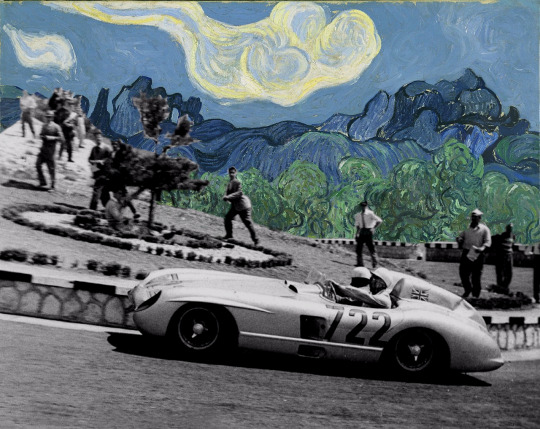
20 notes
·
View notes
Text
A Scene from The King’s Speech
The King’s Speech, released in 2010, is a universally acclaimed film winning 4 Oscars, including best picture. The film not only delights one with its crisp and clear storytelling, but is also gratifying to watch. With phenomenal performances from its lead actors Colin Firth (who won a best actor award), Geoffrey Rush and Helena Bonham Carter, the film keeps the viewer gripped and involved in the story for the entirety of its running time. A real story about the stuttering king of England, King George VI, and his journey to overcome his struggles with the help of his wife, the queen, and his speech therapist, Lionel Logue, in time to give a message of inspiration and hope to his subjects during the initial stages of World War 2.
One of the most important parts of the film is when the King, called “Bertie” by his family, meets his therapist, Lionel Logue for the first time. In the scene, both men are uncomfortable in the situation they are put in (The King is sent to the therapist by his wife). This is made even more clear to the viewer by way of the clever cinematographic techniques used. Bertie remains uncomfortable throughout the whole meeting. This is characterised by an ‘unbalanced’ frame that the camera puts him in, which means that his face and body are always at a horizontal or vertical extreme end of the frame. This discomfort with his situation is also evident by the fact that the wall to which Bertie is sitting with his back to, is painted in a splatter of colours and disjointed associations, showing the mental distraction.

Although Lionel’s face in the earlier parts of the scene is showcased in the same manner, he soon takes charge of the situation and assumes a more commanding position, even though he is talking to the King himself. The way he adapts to the situation is shown by having his face in the middle of the frame from then onwards. Lionel also has fewer camera cuts as compared to Bertie, thus making us believe that the two men, even though in the same situation, have not reacted in the same way to each other.

This scene shows that Bertie thinks he is wasting time with the therapist and that nothing can hep him cure himself of his stuttering dilemma. He also thinks that Lionel is inferior to him and reacts to him in a rather off-putting manner. However, Lionel takes it in his stride, and resolves to make the King understand that he can indeed help him and that the King has no reason to doubt his abilities or mistrust him.
Afterwards in the scene, Lionel tells the King to read a portion from Shakespeare’s great drama, Hamlet, particularly the soliloquy “To be or not to be”. When he first reads it, Bertie stutters a lot and gets incensed by Lionel for wasting his time. However, Lionel then makes him read the same portion while playing Mozart’s opera, ‘The Marriage of Figaro’, on a headphone. He convinces Bertie to do this by offering him a bet. The King doesn’t have any money, and Lionel offers him his own change, again showing how Lionel attempts to make the King believe that he is indeed a friend. With the music on, we learn that Bertie can indeed read out perfectly from the text, indicating that the real problem with him is not his speech, but his mental confidence.
Here, the inspired decision of choosing “To be or not to be” as the one text used by Lionel to implore the King to speak it is significant because of the role it essayed in the original play. Hamlet’s speech is called a soliloquy even though he is not actually alone on the stage. There are three other people on the stage that Hamlet doesn’t notice, and who actually hear him speak. It is possible that if Hamlet were to know that these three characters, Ophelia, Claudius and Polonius, are listening to him, we might not have got one of the greatest pieces of writing ever written in the English language. In fact, Claudius and Polonius cannot even understand whether Hamlet is really sane or only pretending.
Thus, Hamlet’s position in the play is extremely similar to Bertie’s, in that they both have important things to say, but they are limited by their confidence. They are both aware and afraid of the ridicule that they might receive if they speak what they have to speak and how they speak it. A big part of Bertie’s life is the ridicule he received from his brother, and the shame that his father, King George V felt and made clear to him. In Hamlet’s case, he is more confident because he knows no one else is listening to him, but in Bertie’s case, he is more confident because he cannot listen to himself. This parallel is interesting because their motivations and conditions are different. As in Shakespeare’s oft-quoted phrase, “Some are born great, some achieve greatness, and some have greatness thrust upon them”. The Kingship of England is thrust upon Bertie when his father dies and his brother abdicates the throne.

Even the text of “To be or not to be” is interesting in this respect because it deals with a choice that the protagonist has to make, and that choice has been thrust upon them and that choice may well impact the lives of many others. Such a parallel between two pieces of text from two wildly varying times in history show that literature transcends all space and time and is clear and relevant to all who read it.
youtube
youtube
1 note
·
View note
Text
Pratidwandi
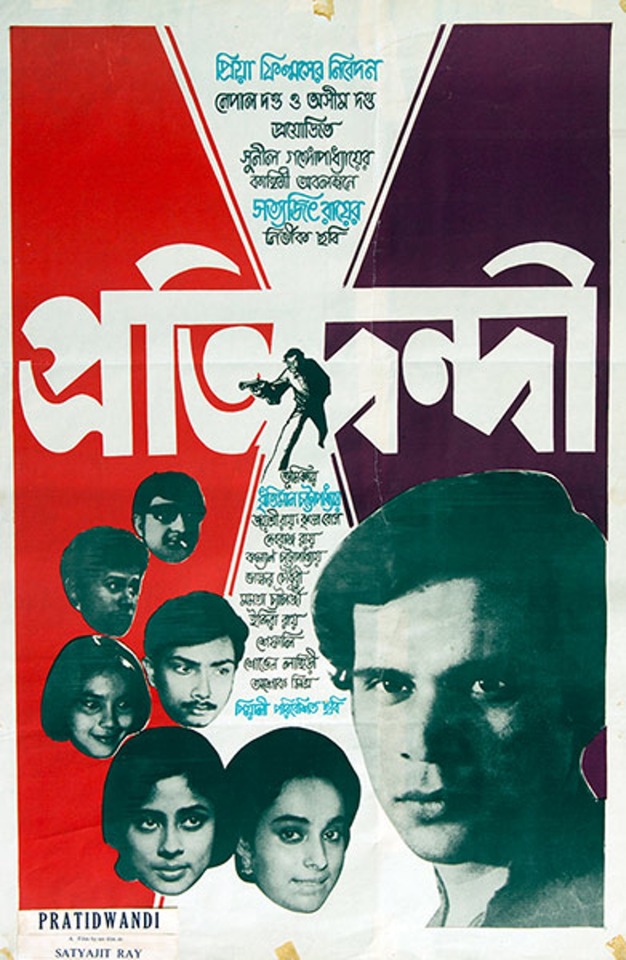
Pratidwandi is a film based on the central ideas of the corruption of the minds of the youth away from the pursuit of true knowledge and understanding to the immersion of their selves into a capitalist culture of greed, desire and commercialisation of your very being. It is one of Satyajit Ray’s most cynical views of society, and is part of a trilogy on the Calcutta of the 1970s, which saw many disruptions and changes in how the people lived, with the simultaneous invasion of American-style capitalism and Soviet-inspired Communism entering the political, economic and social scenes. Pratidwandi looks primarily at how the disaffected youth dealt with the changes in such a society.
The story revolves around Sidhhartha, an idealistic boy who wants nothing more than to get a job and provide for his family. He has a sister, who is a model and aspiring actress, and is a representation of complete submission to the capitalist commercialisation so prevalent today. His brother is a revolutionary who has left home to start a struggle against the regime in power in the state, a complete antithesis to the ideologies chosen by his sister. In the middle of all this, Sidhhartha does not know what to follow as he goes for one job interview after another, getting rejected at all of them for various inane reason that he feels do not reflect on his abilities.
This film deals a lot with the psychological turmoil that Sidhhartha faces as he goes through the motions in life, even falling in love and then realising that love itself might be an ideological endeavour that he might not be prepared for. The film is an enterprise in psychological realism as it does not implicitly show how the society is changing, but only does so through the viewpoint of Sidhhartha, who is as confused as the audience in the beginning, but as the film goes along, we as the viewers learn along with him how this world is changing and it is left upto us, and indeed upto Siddhartha himself, to decide whether it is for the good or not.
The film has some of the most iconic and pathbreaking cinematography in Bengali cinema, including one of my favourite shots in Indian cinema, showing Sidhhartha walking across a road, in a decidedly confused state of mind:

The shot deftly shows the battle raging within Sidhhartha’s mind as he fails to understand the greed and unsustainable policies that the companies who reject him hold. He wants to understand why this is so, as he is becoming desperate for a job, is qualified, capable, and yet only offered mundane posts. In the end, frustrated, he even fights with an interview board over their awful treatment of the unemployed young men that have come to their office in hopes of getting a job in an iconic scene, and then finally reluctantly agrees to go to a remote village for a posting.
The film is a study on how conflicting external ideologies can put your mind at such stress and conflict within yourself. You might even be at odds with your own identity, as you are constantly told who to be, what to do and even when to be yourself. You lose your understanding of what ‘yourself’ is, and that is the emotion that Satyajit Ray has captured through this film. The loss of idealism, which is overtaken instead by some other corrupted ideology is a theme very relevant even today, especially today, as we grapple with so many global issues as well as being a generation that is the most affected by mental illnesses.
0 notes
Text
The Realism of Solitude
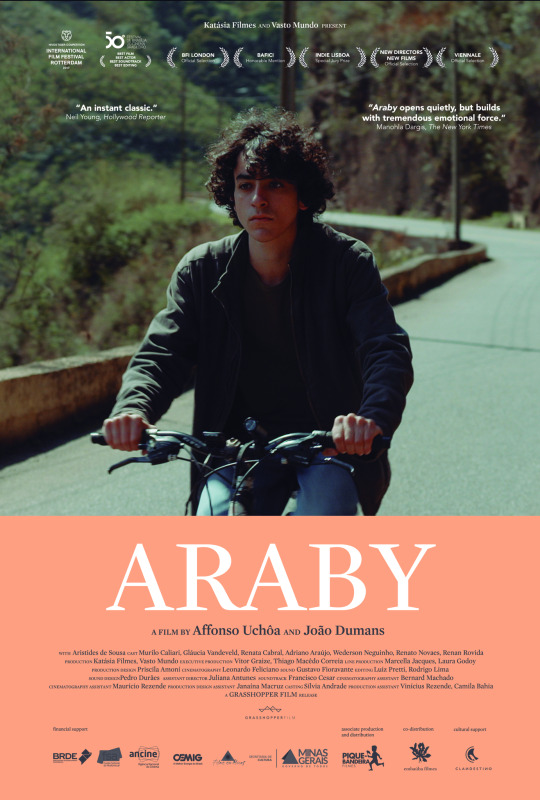
There are two recent films made on the idea of solitude and its effects on human life made in the independent scene. These are the brilliant Brazilian film ‘Araby’ (2017), and the seminal Polish-French work by the great auteur Krzysztof Kieslowski called ‘Blue’ (1993). The overarching topic that both of these stories deal with are those of solitude and loneliness, and how the protagonists find different ways to deal with the same issues.
Araby is a film that starts with a diary entry and tells the story of a labourer who in his youth had gone to jail for two years, and comes out a reformed man who wants to change his life and live an honest living. He goes to his cousin’s tangerine farm, where there are several instances of his destitution and depression, as he mentions how he eats tangerines so that he doesn’t have to spend money for food. The oppression and problems he has with the owners of the farm makes him decide to leave the place and go to work as a roadside construction worker where he finds that he can’t make any relevant friendships. He longs for someone he can actually talk to and share his feelings with. The road works become too hectic for him and he ends up shifting again, this time going to a factory where one of his old jail buddies had called him.
It is here that he meets a girl who changes his life. She is a site supervisor, and his daily visits to her to submit reports and other paraphernalia blossom into a romance and they start seeing each other. This companionship is described as a very peaceful and happy time in the entry of the labourer and he wishes he can go on to make things even better for the both of them. As in every beautiful thing, this too comes to an end in a heart wrenching manner. The woman announces to the labourer that she is pregnant, but the labourer believes that he isn’t ready for such a responsibility and that they should not continue dating like this. Thus, he breaks up with her and goes to another factory, where he lives a lonely life that corresponds with the lonely life of two children whose parents are always travelling outside the country and leaving them in the care of a nanny. In the end, he dies as a lonely man with no one to look after him when he succumbs to a factory accident.
The film Blue related to the concept of liberty, as it is part of a trilogy of stories called Blue, White and Red, all inspired by the colours of the French flag and the ideals that they represent. However, how this is expressed is through a study of solitude. It is the story of a woman who loses her famous composer husband and her young daughter in a car crash that she herself survives. She inherits a ton of money, and yet according to the conventions, we as an audience are supposed to feel that she has lost all will in life, what with after losing her husband and daughter at the same time. However, the film turns into a tale of liberty as the woman discovers during her journey of grief that the deaths have in fact given her a new lease of liberty that she had forsaken after her marriage to a famous personality and after the birth of her child. She uses this new-found freedom to reinvent herself and relocate herself in her life. This journey shows us how, in complete defiance of the story of Araby, solitude and loneliness often lead to a kind of liberty of our souls and that we can find happiness even in the face of the utmost grief and sorrow. Araby, on the other hand shows us how we can also be depressed and sad in the most normal circumstances which might not seem like they have any problems.
When it comes to which of these films has aspects of Material Realism and Psychological Realism, it is not easy to put them into groups. However, after looking at the essential purposes of making the film that the directors may have had, Blue can be categorised as a film about psychological realism whereas Araby is the one that can be characterised as a film about material realism. This is possible to say because Blue deals with an in-depth cinematic study of the state of mind of a person after a great personal tragedy, and showcases subtly how her outlook towards life itself changes so dramatically, and yet with such grace and elegance. The film does not rely on the viewer to have had the same experiences in life to understand it, but it also appeals as a way of showing people who may have gone through such a tragedy how to deal with the grief and negative feelings that they may feel afterwards. On the other hand, although Araby is a very cerebral film, the fact remains that to entertain the story, the viewers do not need to have the same emotional connect with the protagonist, nor the same experience of the labourer to understand the feelings that he is going through because the film showcases this feelings very explicitly through the words of his diary entry and specific descriptions of his descent into a maddeningly depressing solitude.
To categorise the two films as film and cinema, we can go back to our earlier analysis, and come to the conclusion that both the stories are pieces of cinema, because they both are the medium of their director’s to communicate to the audience. They do not end simply after the credits roll, but stay with you even after you leave the theatre, with ideas that they implant in your mind to germinate and take a long time to create even more supplementary ideas with your own soulful diction. The directors also use the films as a medium to showcase their specific creative talents. The directors of Araby, for example, are documentary filmmakers, and in this, their first fictional tale, they showcase their documentation talents, because of which this film becomes not a story, but a ‘document’ of our times that will survive to the end for our future generations to see it and savour or maybe look back with contempt at the world we live in now. Kieslowski in Blue uses his astounding talent of cinematography and understanding of colour to display the mind of a person in the visual form of poetry. This enables him to document not a time, but a person, and to us, 27 years later, she is an example of a person who lived in a bygone age, dealing with her problems in the old fashion, something which is both relatable to us, and yet not quite achievable in the same way today as it might have been then, in 1993.
These two films have become pillars of my very being in recent years, especially as I grow up to become a person who has come to enjoy his solitude and embrace it. They give a person like me hope that things are always better when they could have been worse, and that even in the face of tremendous tragedy, one can find great optimism, to grow, reach out and flourish. They should be compulsory viewings for people, especially of my age, and are representative of the very best of the 20th and 21st century.
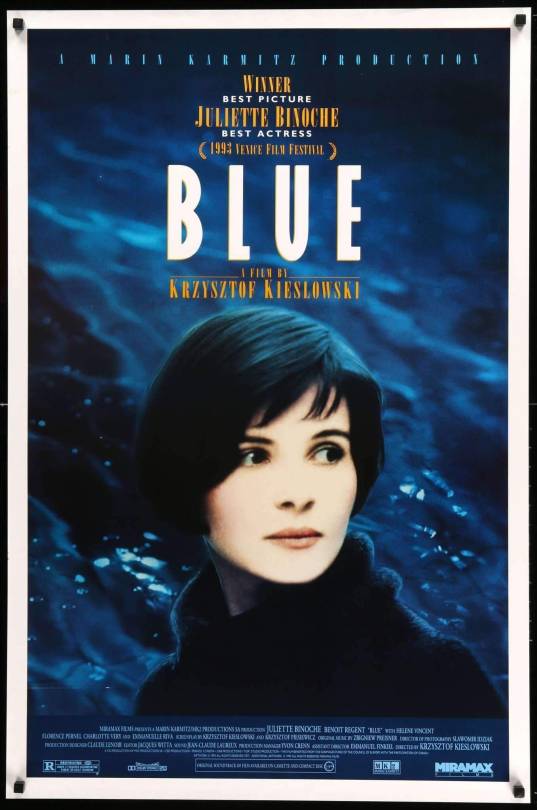
#solitude#loneliness#films#Film Review#blue#brazil#brazilian films#poland#polish films#krzysztof kieslowski#araby#three colours#three colours blue
1 note
·
View note
Text
FOOD REVIEW BY EXPERT FOOD EATER
I have often reviewed food on the singular qualification based on the fact that I have occasionally had food in my life. I have also seen Masterchef Australia, US and India several times. Not happy with these achievements, I have also watched almost all episodes of Binging with Babish and Buzzfeed Worth It on Youtube. Therefore, forgive me for being an expert on the topic. Normally, I would wax lyrical on the most fantastic cuisine I have ever had, from the exquisite biryani at Kundana (who deliver even at 2 o’clock), to the value for money easy bites. However, today I would like to narrate my story of a culinary experience that taught me a thing or two about life.
It all began one day when I saw an advertisement for a newly opened restaurant in Elgin Road called Sumo Dough in Calcutta, which apparently had the best tiramisu in the city. Being a connoisseur of tiramisu myself, a lover of the combination of the choco and cafee, I resoluted [resolved] to go there and personally test their menu, just like a Michelin food critic would do, all undercover. They would never find out who I was. I would slip in under the radar, judge their tiramisu with all my experience, and come out with a most informed opinion, and influence the various culinary enthusiasts in the big city. I would go the very next day.
My problems were immediate and extreme. I did not have the money to take a cab to the cafe itself, so I had to beg a friend to drop me anywhere near Elgin Road, from where I could walk. As a wise man once said, walking before a meal is good thing. My good friend however, dropped me 4 kilometres away from where I was supposed to be, essentially even farther from my location than I was before I asked him. Nevermind, I thought, the exercise will only make the food taste tastier. I walked the whole way while listening to Taylor Swift’s Shake it Off and eventually reached Sumo Dough, awaiting me.
As I walked inside, I noticed the beautiful interior almost matching my sense of style, with orange walls and green hues, matching my lime green blazer and orange pants. I was immediately impressed. The owner must be someone who possessed class. I went and ordered the tiramisu, and the waiters looked at me with wide-eyes, and I fear they may have looked beyond my ordinary demeanour and noticed the extreme wit hidden inside, one which was about to critically analyse their restaurant. Sensing this, they gave me prime seating near the toilet so that I could access it anytime, and kept me out of the view of the other customers, for a truly personalised experience. I was even more impressed.
The famed tiramisu arrived. Times City had not been wrong: it looked delicious. The tiramisu was cuboidal in shape and white and brown in colour. It was supported by a sprinkling of cocoa powder and a swipe of chocolate syrup which enhanced the look. Again, this restaurant impressed me. I almost did not want to take a bite of the thing, as it would mean ruining the piece of art. I took a bite and felt things I did not think I could feel before. I kept taking bites until I was finished, stood up, thanked the staff, and left without a word.
The following day, my review came out. My mom read it and didn’t say a word to me. Maybe I had really impacted her. I decided to take all my friends to the cafe to let them have a taste of it for themselves. Over the next few months, I took each of them to the cafe to let them see what I had seen and come together with me and feel as I was feeling, as they say in yoga and all, connect with me on a cosmic level.
And all of them were of the same opinion as me: It was the worst tiramisu they had ever had in their lives. The whole thing was a shambles and nobody wanted to be friends with me anymore for having introduced them to this place. Sumo Dough even closed down for a while because otherwise they would have been picketed by a mob. The cocoa was bitter and not tasty, the cafee bit was not cafee tasting and the chocolate sauce was like dark brown water. My life has literally never recovered from this experience. I hate Sumo Dough.
#food#foodlover#food review#yummy#tasty#this is real#why would you not believe me#i am a foremost expert
2 notes
·
View notes
Text
Suffering From Success
It is now 01:15 and as I lay awake in my bed my mind keeps racing back to the same thought: I am too privileged. I wish I had some problems in life. Remember the film Rockstar, by Imtiaz Ali? It is about a man’s journey to find his ‘great struggle’ in life in order to find the creativity to make music. When I first saw the film, I was pretty confused and irritated by the inane storyline that made it seem as if suffering was the key to success (insert suffering from success meme). However, it is only now that I have almost finished the first year of my college life, a period in which I have for the first time left behind the bubble of living in environments surrounded only by people who were like me and understood my place in life exactly; mostly these were army kids. All my friends in college are civilians though, and the way they have lived life gives me a new perspective on what privilege and a good life mean to different people.
A short view back to the past. I was born to an Army Officer and his teacher wife a year after India fought its last war and a year before America had itself brought to its knees by a goat-herder. I was the only child in my entire family for five years, a period in which I received the uncontested and undivided love and attention of both sets of my grandparents, aunts, uncles and other paraphernalial family members. I was taught everything that they all knew, giving me from the early days an uneasy dichotomy in values: a strong belief and trust in the existing machinery (from my government professor maternal grandfather’s side) and an equally strong need to find the truth and not take anything that anyone says at face value (from my journalist paternal grandfather’s side). Now that I am studying Political Science as one of my majors and have identified it as my field for all future endeavours and any and all misadventures, you can only imagine my confusion in class whenever a topic comes up for debate or discussion, as I swing on both sides of the road (I know some of my friends who are going to take me on a ride for that line).
Thus, you can imagine that no stone was left unturned in my upbringing as I proceeded to travel the length and breadth of the country with my father and mother in the backs of Army lorries and gypsies. This, and the army rations that we used to get till when I was about 13 years old, which used to include things like chocolate spreads and jelly powders, made my life a pretty nice one to live (I am still very much incensed with the government for having taken away the joy of that ration and its essential everyday commodities, not just from me, but also from my brother, who didn’t even get to enjoy them). And so, it went on: I’d go to school, come back, have a bath and watch Noddy on the TV, after which I’d eat lunch and roam around the house waiting for official ‘evening’ to begin at 4 o’clock, so that I could then go out and play till before it got dark. Then I’d come back home, finish my homework, watch a little more TV, eat and then go to sleep. Can you imagine the luxury I was living?!
Sadly, it is purely the reason for the creative stump that I am and the frequent writing blocks that I experience. Little Tray had too good a time eating chocolate and jelly for breakfast, lunch and dinner and now he can’t do anything requiring a little creative process to commence in his left brain for shi*t. Now, this whole rant may seem a bit rich coming from a person who’s so privileged in life; and you’re absolutely 100% right. I am a straight, upper caste Hindu, fair, man who was born in a fairly middle class well to do family. “I have overcome literally nothing to be where I am”, to quote the Bard of our generation, Bo Burnham (Watch this following little clip, it makes my point very clear, very eloquently).
youtube
The thing is this: I am now the perfect lab rat for a little experiment. With everything I have, am I guaranteed to be successful? Or at least do something consequential with my life? I have been presented with all the resources, I have essentially been given a head start in the whole race and in fact, it is up to the others to at least catch up to me here. I have not even been subjected to any serious trauma, and in fact, have been blessed (or in the opinion of my dear ‘friends’, ThEy hAve BeEn cUrSEd) with a nauseatingly powerful sense of optimism that overtakes all my worries and fears (I do not fear death, I welcome it). What I ponder about now, at 2 in the morning, is that if I do not make something of myself, I will actually have failed the entire notion of a person being successful on their own merit if they have provided with the resources and opportunities in their life. However enticing and tempting the idea of dismantling the entire ideology and argument of capitalism single-handedly may sound, I simply cannot allow that to happen. It would mean dashing the hopes of the Billions who have been constantly working towards reaching where they are, and are constantly working towards reaching an even higher and better place in life. Or maybe that’s a good thing. I cannot be the judge of that. So, look around you once and appreciate all the people who are all undergoing their own personal struggles in life and are constantly bettering themselves. Their struggle makes them better people and they deserve to be acknowledged and appreciated for being at it all day, every day. What I can tell you is that in 10 years if I do not find myself as an IFS/IAS/IPS officer, I will have failed in the path that I have chosen for myself with my exasperating multitude of resources and opportunities, and the ability itself to have the choice, then you have no chance, buddy. Might as well give up.
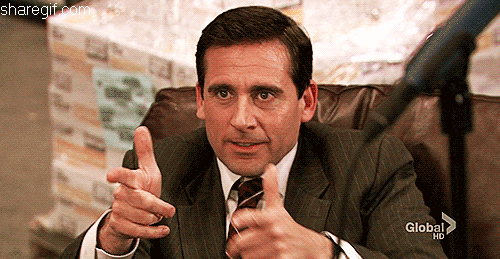
9 notes
·
View notes